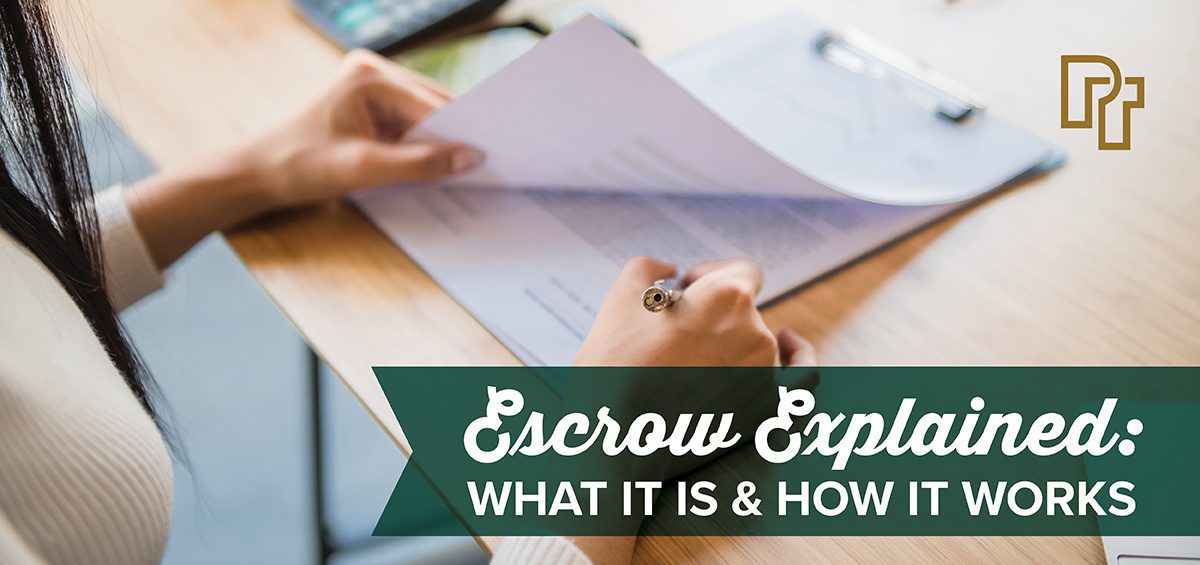Escrow. It’s a term used often by real estate agents and lenders during a real estate transaction.
As a homebuyer, if you are confused about what exactly it means to put money into escrow, you are not alone. Here’s a basic breakdown of what escrow is and how it works when buying a house.
Escrow is a legal agreement in which a third party controls money or assets until particular conditions are met, reducing risk on both sides of a transaction. In real estate, escrow accounts are typically set up for two reasons:
1. To hold earnest money. When the buyer and seller reach an agreement on a purchase, the escrow agent collects the earnest money from the buyer and holds it in the account until the closing is complete. The money is then applied to the down payment. Putting it into escrow eliminates uncertainty over whether either party will be able to meet their contractual obligations.
2. To hold money for future tax and insurance payments. After a home purchase, the lender may establish an escrow account to pay for annual property taxes and insurance. The lender takes a portion of the monthly mortgage payments and deposits it in an escrow account until those payments are due, then pays the bills. Putting that money into escrow ensures the buyer has the funds needed to make those payments.
While you have no choice about putting earnest money in escrow, you may have a choice about putting your tax and insurance money in escrow depending on the type of loan you secure.
Banks usually use the loan-to-value ratio to determine if a conventional loan will require an escrow account. Borrowers with mortgage amounts at 80 percent or less of the home’s value can typically opt out of escrow. Those with less than 20 percent are required to have an escrow account. Borrowers who secure Federal Housing Administration (FHA) loans and Veterans Affairs (VA) loans are also required to have an escrow account for taxes and insurance.
Keep in mind that while it may not be required, putting that money in an escrow account on a monthly basis may be a more convenient way to meet the annual obligations of these large-sum payments. The amount is broken up into smaller, more manageable chunks which can help you better manage the finances.
That said, putting taxes and insurance money in escrow means your monthly mortgage payments will be higher. Also, escrow is reassessed each year which means you may have a new estimate each year depending on if you were short on funds or had excess money in the account.
In the end, whether or not you have to put money into escrow will depend on the terms of your purchase agreement and the requirements of your lender. It’s just another aspect of a real estate transaction that is helpful to understand before you get too far along into the process of buying a home.







